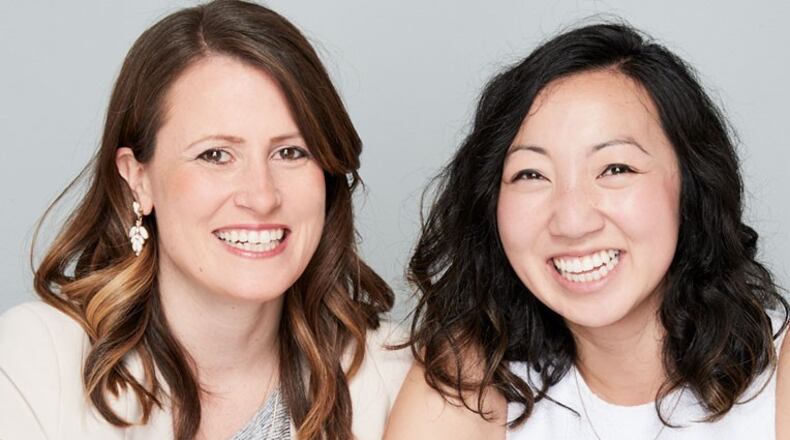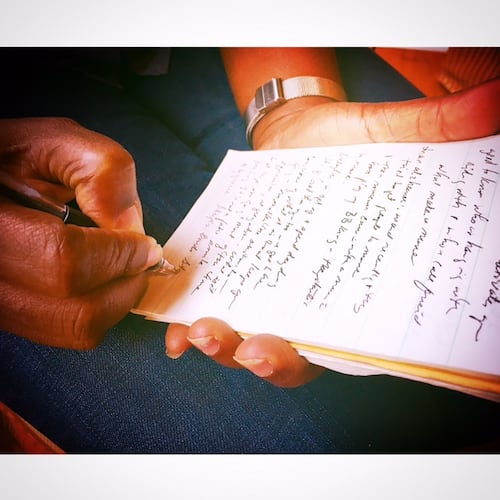UPDATE: The headline of this column has been changed to better reflect The Lola’s founders.
“We can’t remain silent; we can’t ignore what is right in front of us and we can’t stay perpetually paralyzed and do nothing.”
That single sentiment from Martine Resnick and Eileen Lee, dropped in a press release last week about a year-old effort to foster anti-racist attitudes in their women’s community and workspace, called The Lola, was too much to ignore.
For months, indeed for most of my life, I’ve wondered how is it people can ignore the lingering racism in our society. More specifically, I’ve been wondering why it took the death of George Floyd when it’s been staring them in the face for at least as long as I’ve been Black.
People of every hue and cry have donned “Black Lives Matter” shirts, shouted “Hands up, Don’t shoot” and raised homemade signs touting the same. CEOs of predominantly white-owned businesses and sports franchises have voiced support for anti-racist activism and made big donations toward the cause of racial justice.
And so when I received news that Resnick and Lee were poised to make a $300,000 investment to support Black women entrepreneurs and social justice organizations, I almost hit the delete button.
Not because I didn’t think it was a good idea. I’d just grown weary.
These kinds of efforts are all well and good, but what the Black community wants more than anything is a long-term commitment to do the work to fight racism. To somehow change people’s hearts so that they see us not as threats but as human beings who want the same things as others.
Long before we watched Floyd’s life snuffed out of him on national television, Resnick and Lee founded The Lola and were well on their way to creating a space for women of all ages, ethnicities and sexual orientations to gather, support one another, to push “against anti-Blackness, and advocate for Black and brown women.”
I was curious.
As I wrapped up a telephone conversation with them the other day, it was as if Resnick had read my mind.
Their decision to make this investment, she told me, wasn’t just some “knee-jerk reaction” to a moment.
“This is something that is in our DNA,” she said. “We’re in it for the long game.”
Resnick is a 41-year-old mother of two who after nearly two decades of working for big brands and global companies in London, New York and Atlanta realized that grind no longer fit the life she’d envisioned for herself.
Credit: Contributed
Credit: Contributed
Eileen Lee, 37, felt a similar longing when she switched from corporate consulting to start her own company and then one day found herself seated across from Resnick at a Civic Dinner here in Atlanta.
Over plates of hot Thai food and in the company of other inspiring women that night in early 2017, they clicked. They’d grown tired of the way women were being treated in the workplace, of the narrative that women couldn’t have it all. They believed they could make a difference.
They agreed to stay in touch, and by August that year, they’d outlined an idea on paper to build an inclusive community for women, a safe space to have conversations around gender, identity and specifically race that don’t often happen in Atlanta, the birthplace of the civil rights movement.
They held focus groups that included more than 3,500 women and confirmed their hunch. Womxn, the term they adopted to indicate inclusivity, they said, were craving community where they could meet other professionals from different industries and backgrounds, ages and races.
To foster community, Lee and Resnick found a space in which to gather and over the next year hosted more than 100 events that included personal and professional development classes, talks about social justice and sessions on wellness and well-being. At the same time, they began raising capital to secure a permanent place.
Last summer, they officially opened The Lola in Atlanta’s Old Fourth Ward. About 400 women, of all races and ages (23-77), from all over metro Atlanta, have since joined the effort.
But as Lee put it, they “wanted to put their money where our mouth is.”
What will that look like?
Grants to Black female entrepreneurs and social justice organizations that support Black communities.
The $300,000 investment, mostly from their own coffers, is just a start and will provide free access to The Lola’s community and space and programs intended to amplify the voices of Black women.
“It is up to us and our non-Black members to stand with, speak up for and show up for our Black sisters and friends,” Lee said.
That will include encouraging conversations on race among members and experts and sharing resources to help Lola members become better allies.
Besides racism, that’s the other thing that has long befuddled me. Why aren’t we women natural allies?
Some years ago, when I put this question to Midge Wilson, a professor at DePaul University and co-author of “Divided Sisters,” the answer was simple.
“Given a choice between aligning themselves with the power and privilege of white men, white women will almost always choose white men, even if it means hurting the cause of women collectively,” Wilson said.
That’s why this effort by Resnick and Lee resonated so with me. They believe the time has come, indeed is long overdue, for white women to educate themselves so they can support their Black sisters.
“We can’t say we’re for women until we’re for all women,” Resnick said. “While white women’s experiences are vastly different, our problems are tied together. If we can understand that, we can get ahead. Racism and slavery are not just things of the past, they still impact our everyday lives. As white women, we have a responsibility to address (racist) behaviors because they are more common and pervasive than any of us want to believe. We will continue to unpack and unlearn unconscious bias — so we don’t react like any other Karen. We want to be part of the change and that starts with ourselves.”
Find Gracie on Facebook (www.facebook.com/graciestaplesajc/) and Twitter (@GStaples_AJC) or email her at gstaples@ajc.com.
About the Author
The Latest
Featured





